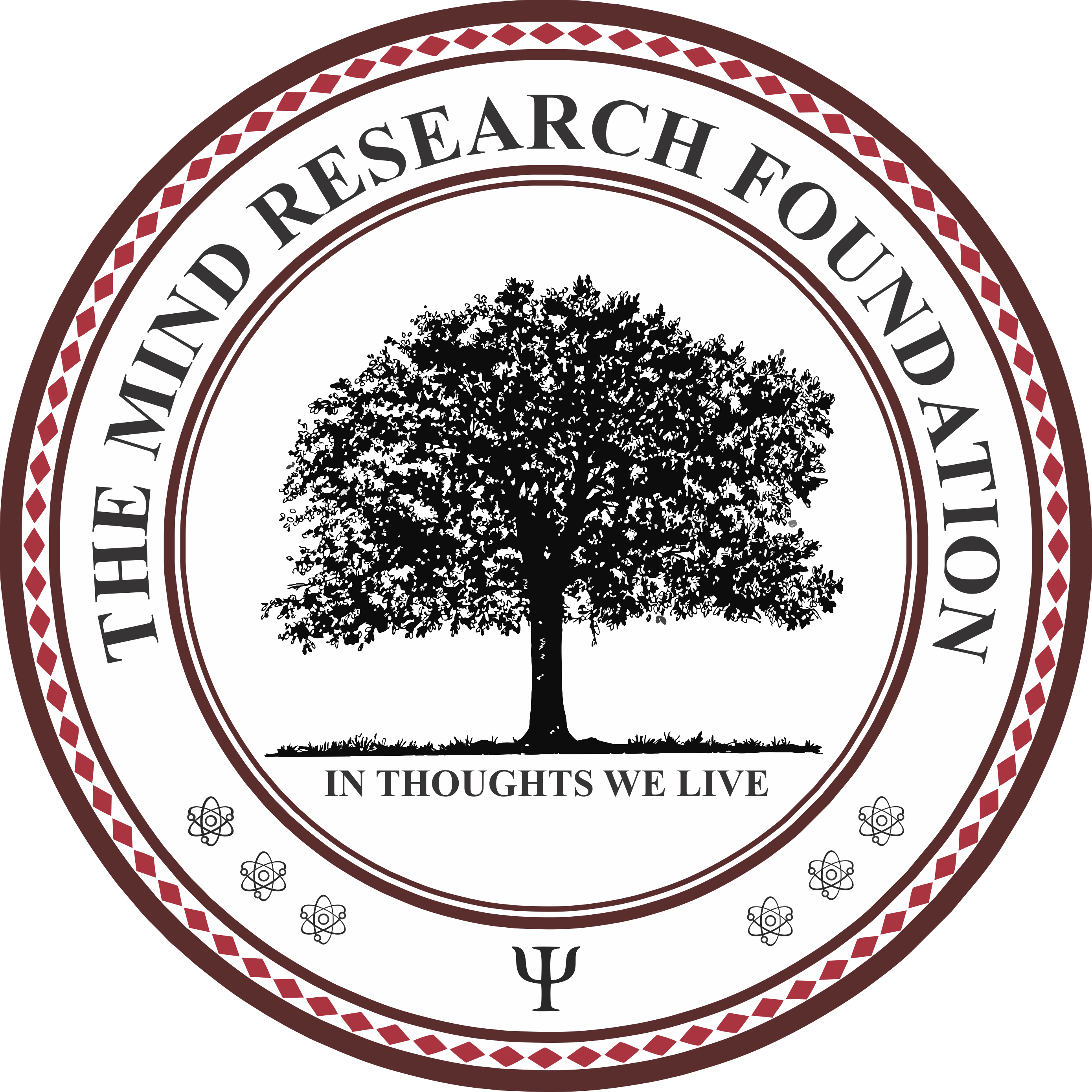The Mind Research Foundation
Our Specialties & Services
Seeking mental health support is a positive and courageous step towards improving your overall well-being.
Getting Started is Easy
Let’s help you get started with a little encouragement from our side. Book your first consultation for free.
Book Appointment
Focus on what you hope to gain from getting help and take the first step to book an appointment.
Intake
Opportunity to create the most whole and accurate picture of you as possible and planning next steps
Therapy Sessions
Unpack your feelings and take control of your life by learning healthy coping skills
Choose Your Thought Care package
RELEASE
- Make a Connection with Your Therapist.
- Release the Unexpressed Emotions and Express Yourself Freely
- 1 Session Online
- Time – 30-45 mins
REALIZE
- Realize Your True Possibilities & Healing Capacity
- 2 individual Thought Care sessions
- Total 2 Sessions
- Time 30-45 mins each session
RECLAIM
- Reclaim Your Best Self
- 4 individual Thought Care sessions including intake
- Total 4 Sessions
- Time 30-45 mins each session
REJOICE
- Rejoice with a newfound keen appreciation for yourself and the beauty around you
- 6 individual Thought Care sessions including intake
- Total 6 Sessions
- Time 30-45 mins each session
Services We Offer
Unexpected Mood Swings
Stress & Anxiety
Irregular Sleep Cycles
Conflict Resolution
Communication Issues
Anger Management
Work-Life Balance
Job Loss or Change
Depression
Couples Infidelity
Motivation & Goal Setting
Mood Disorders
Self-Confidence & Esteem
Body Image
Harmful Thoughts
Isolation & Loneliness
Strained Relationships
Addiction
Memory Issues
Concentration Issues
Grief
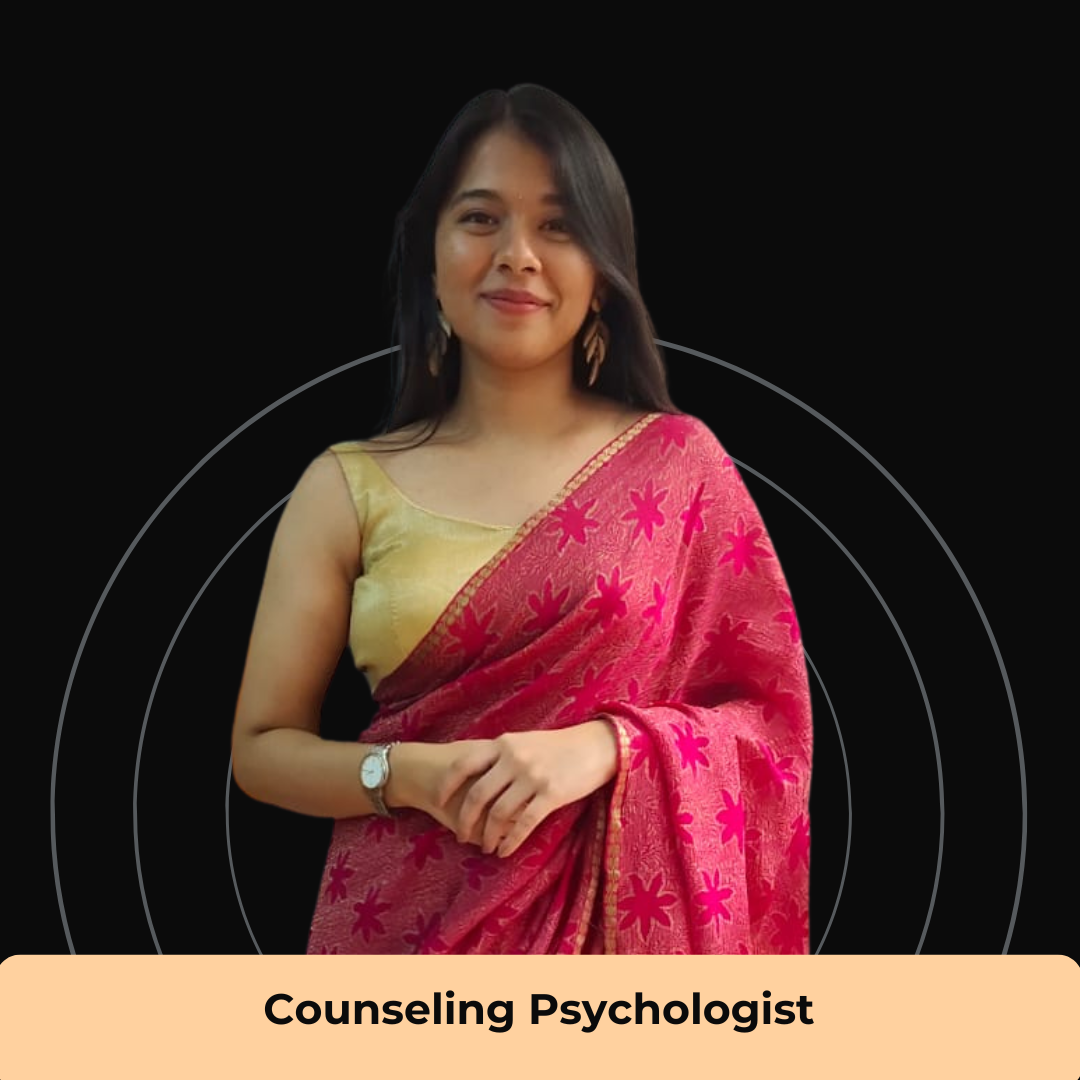
Sanyuktaa Thakur
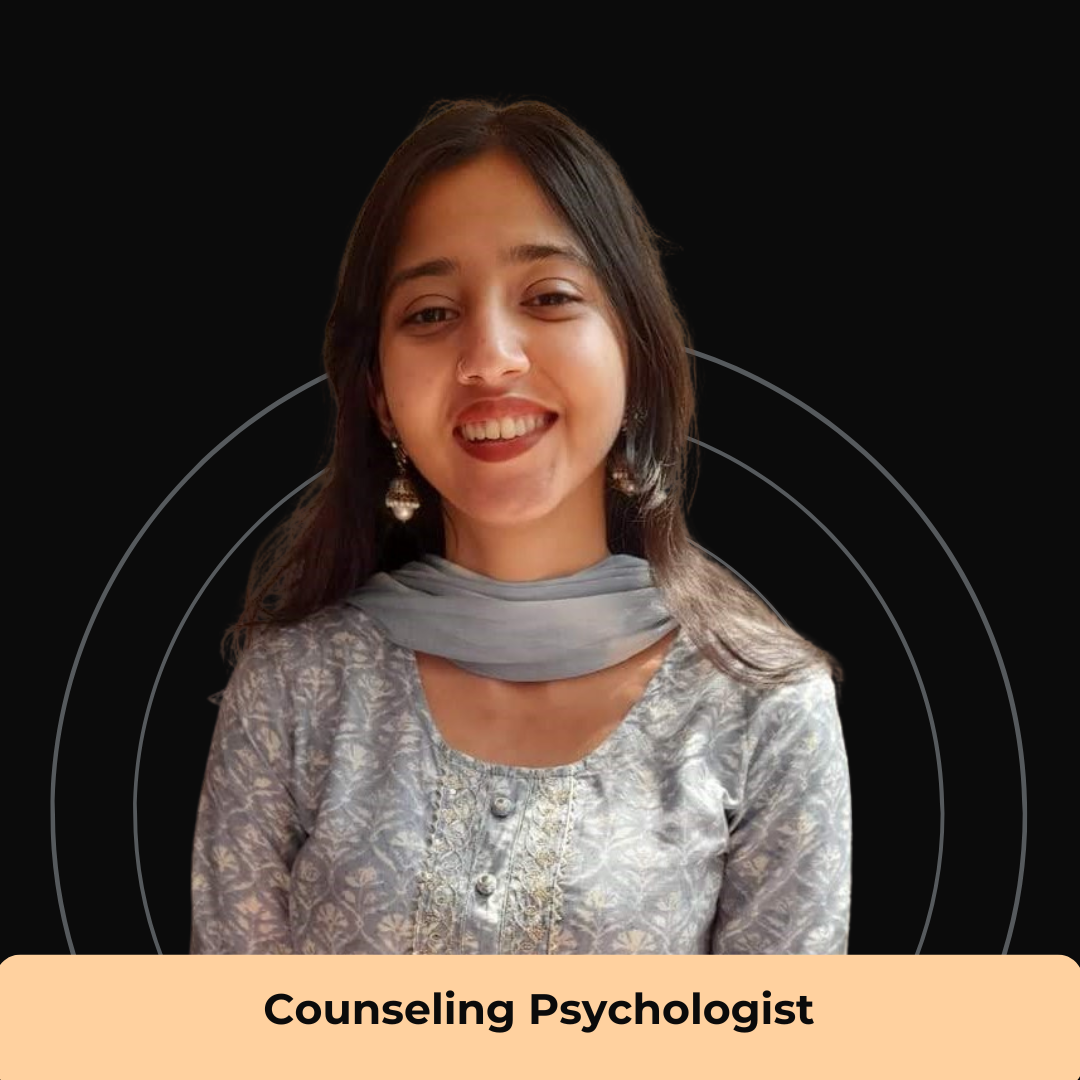
Diya Kapur
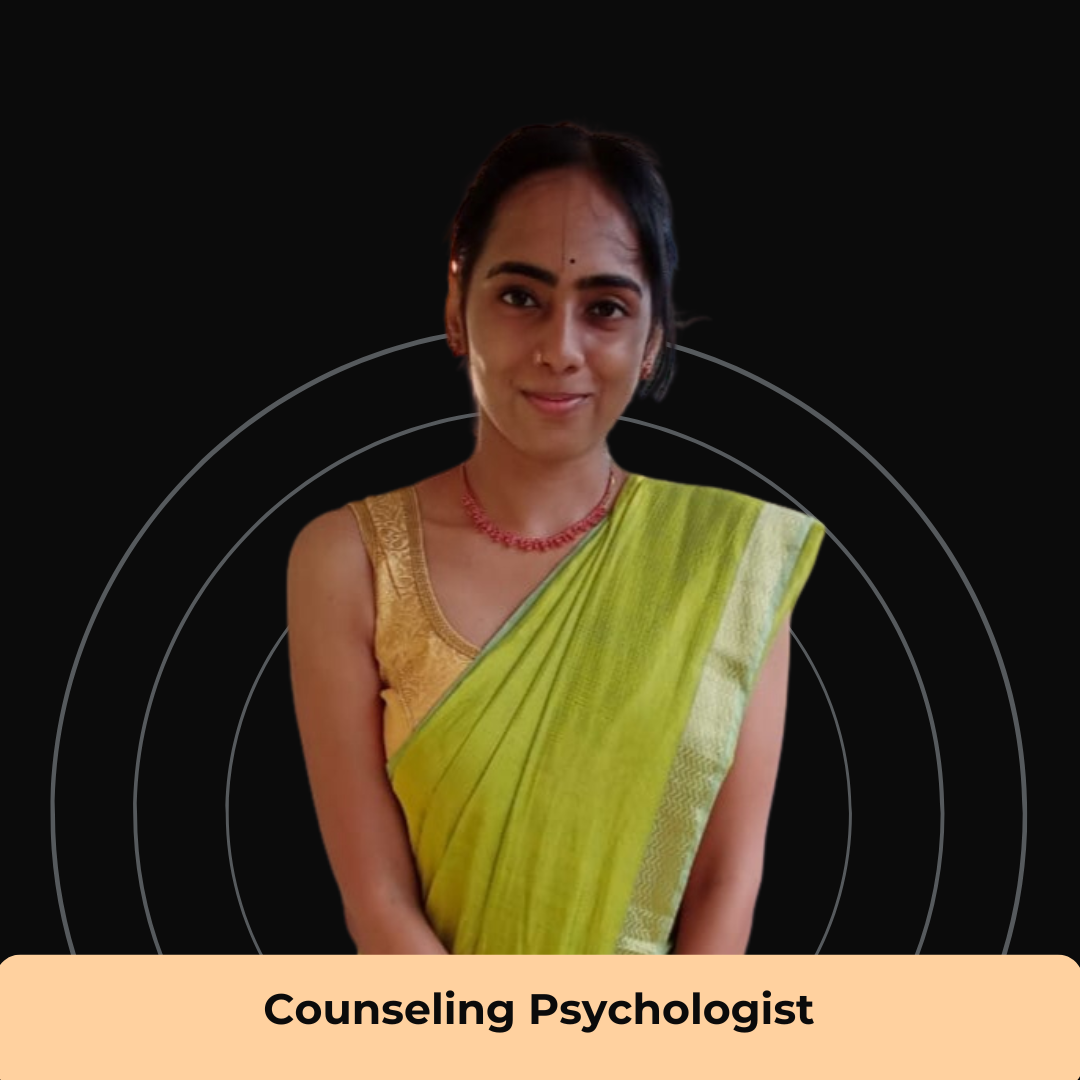
Aditi Mahesh
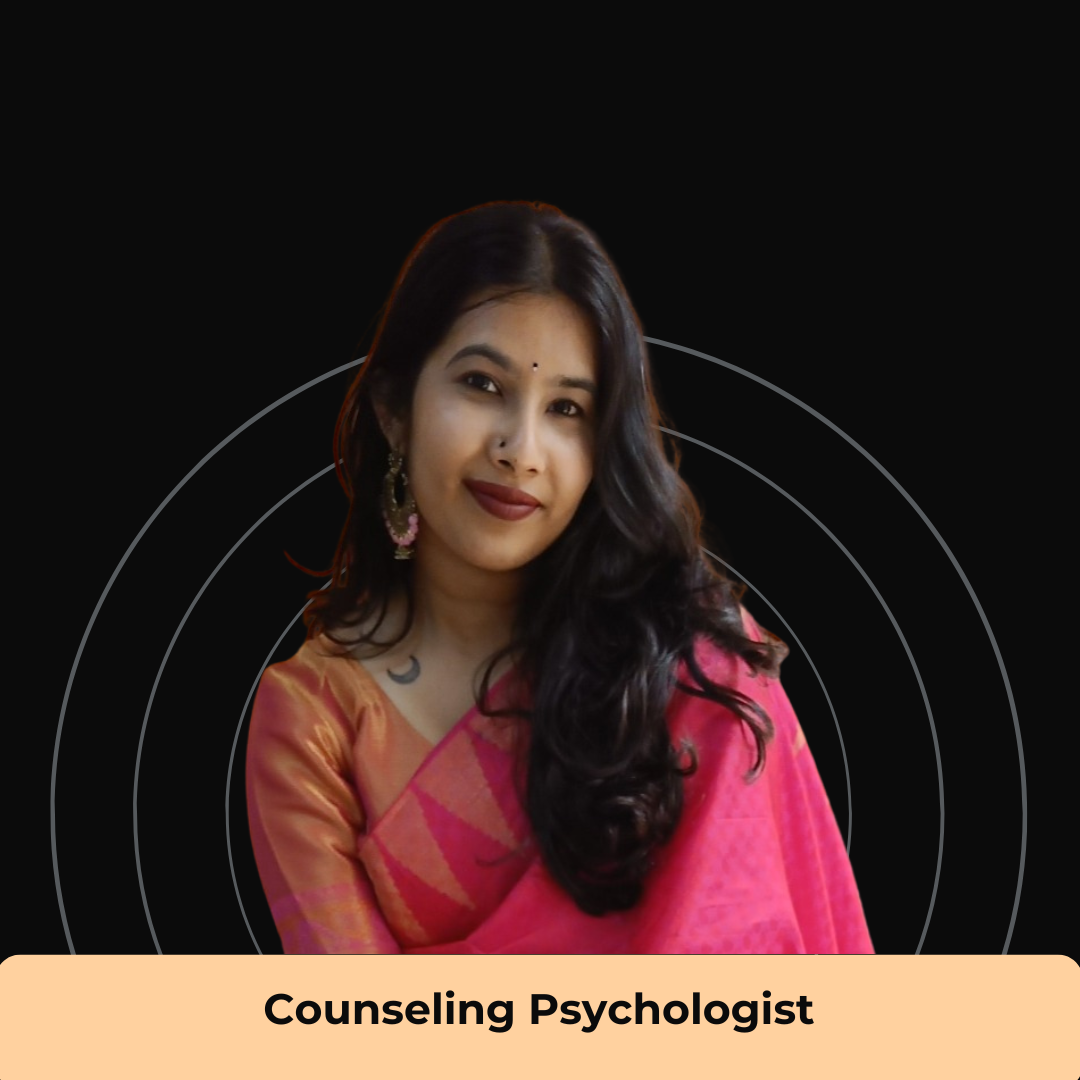
Shruthi Ramesh
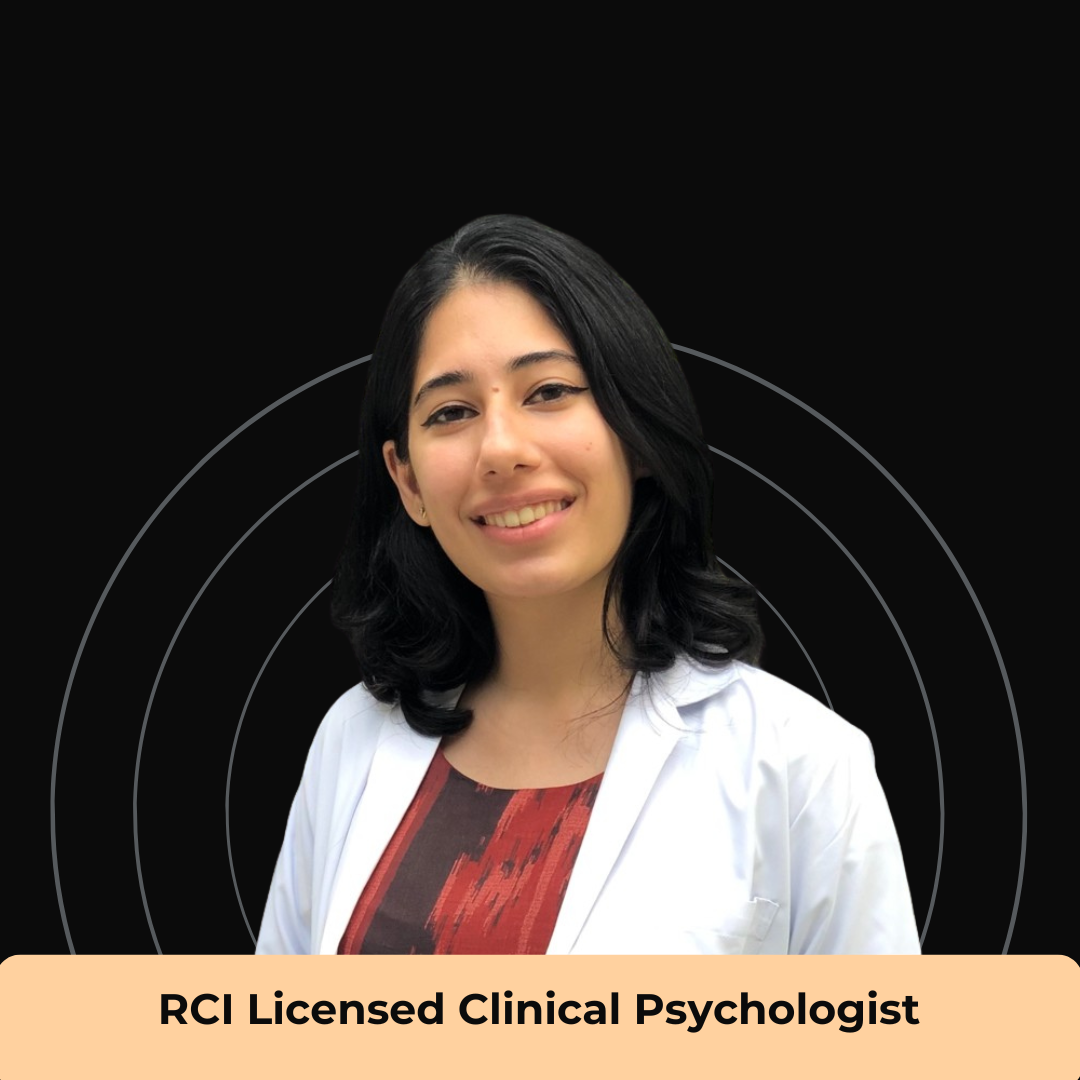
Kripa Khanna

Sanyuktaa Thakur (MSc Psychology)
Counseling Psychologist
Languages are known: English, and Hindi.
Focus: trauma-informed care, anxiety, depression, burnout, trauma, and interpersonal issues.
Works with: individuals of all ages and couples.
Years of experience: 2 years
She aims to create a positive impact in society by helping individuals understand the importance of their mental health and de-stigmatizing the need to receive help. She communicates effectively with her clients and adapts her style and techniques according to the client’s needs.
According to her, disorders can be remediated with accurate counsel and therapy by encouraging the clients not to suppress their feelings but rather seek help through extreme confidentiality.

Diya Kapur (MSc Psychology)
Counseling Psychologist
Languages are known: English and Hindi
Focus: trauma-informed care, anxiety, depression, personal development, self-esteem, body image, trauma, relationship concerns, etc.
Works with: adolescents, adults, and couples.
Years of experience: 2 years
A firm believer in using preventive approaches for mental health, she aids individuals requiring structured emotional well-being support and increases awareness of how mental health is beneficial for our everyday life. Her experience working with clients from diverse backgrounds, age groups, and professions has enhanced her understanding to cater to a varied spectrum of individuals and people.
According to her, therapy is a process through which you can not only overcome challenges but learn, grow, and thrive in your life by exploring and observing the way you navigate through it, and taking responsibility for it.

Aditi Mahesh (MSc Psychology)
Counseling Psychologist
Languages are known: English, Tamil, and Kannada.
Focus: Anger, anxiety, fear, depression, relationship, family problems, addiction, emotional abuse and compulsions, helplessness and self-issues, shame, worry and worthlessness, personality problems, distress intolerance, emptiness, stress, body image issues, interpersonal dynamics, etc.
Works with: individuals of all ages.
Years of experience: 2 years
A firm believer in the importance of mental health, she engages clients in therapies based on their core problems. She believes that mental health impacts our state of being, our quality of life, our performance at work, our interactions with our loved ones, and in a larger sense our sense of self and satisfaction in life. Through her experience, she has led the delivery of quality therapeutic adolescents and young people.
According to her, making a good impact ‘as a human-for a human’ and helping create a positive difference in society is important.

Shruthi Ramesh (MSc Psychology)
Counseling Psychologist
Languages are known: English, Tamil, and Kannada.
Focus: anxiety, depression, burnout, self-esteem, stress, body-image issues, interpersonal issues, marital and relationship concerns, personality concerns, addiction, trauma and abuse, emotional dysregulation, distress intolerance, lack of motivation, etc.
Works with: individuals of all ages, couples, and families.
Years of experience: 2 years
She strongly believes that mental health plays a very important role in the balance of the overall health of any individual. She helps clients navigate their past to figure out the origins of maladaptive behavior and uses behavioral approaches to help them. She also gives importance to psychoeducation clients about their presenting concerns, the therapy process, and generally increasing their awareness about mental health and their sense of self.
It’s also important for her to advocate for mental health, by speaking about mental health and mental health concerns openly to her clients as well as the general public.

Kripa Khanna
RCI Licensed Clinical Psychologist
Languages known: English, Hindi, and Punjabi.
Focus: mood disorders, substance abuse, delusional disorders, stress-related issues, behavioral and psychological development disorders, substance abuse-related, childhood disorders.
Psychological assessments– IQ, Personality, Autism, ADHD, etc.
Works with: individuals, couples, children, and the geriatric population.
Years of experience: 2 years
She firmly believes in the power of change, no matter how small, in individuals and its impact on families and communities. She advocates firmly for children’s mental health and well-being. With over 2 years of experience, Kripa has seen how small positive changes lead to bigger changes when encouraged. She also believes in equipping clients, no matter how young or old with life skills that they can put to use for their well-being and teach others to do the same.
According to her, those who seek help for mental health care should be motivated to change and grow as an individual.
Talk to Someone, Talk to Us Today!
Providing “One Stop Solution”, The Mind Research Foundation provides for the best mental health counselling online and offline through its team of expert therapists, relationship counsellors, and trusted psychologists, for multiple areas of expertise under one roof for easy, comfortable and affordable counselling experience.By offering a range of expertise and services under one roof, it can help individuals find the support they need to overcome their struggles and improve their mental well-being.
Our Four Pillars
Neuroscience
Positive Pschology
Thought Centric Approach
Mindfulness-Based Interventions
Frequently Asked Questions
How do we provide the best quality service?
Focusing on the symptoms rather than the label or diagnosis, The Mind Research Foundation provides the best quality care with our well-experienced psychologists who will try their best to meet your needs.
Why will I need counseling or psychotherapy?
No matter what stage of life you might be at, you might be going through some stress or difficulty in your everyday life with respect to work, friends, or family. We help you deal with these stressors and navigate your way to a fulfilling life.
Is Online Therapy Safe?
We at The Mind Research Foundation take personal information privacy seriously. We make great efforts to ensure that all communication between you and your therapist – written, audio, and video are safe and confidential. Your safety is our priority. Our experts are also trained to maintain the highest standards of professional conduct by keeping your information private.
How Long Does Therapy last?
Therapy involves a structured, time-bound and collaborative effort from both the therapist and the client. Both need to work together to uncover the root of the problem and generate realistic solutions. Brief therapies have definitive goals and involve 3 to 4 sessions with cognitive feedback and homework exercises to initiate self-change. For long-standing issues and personality problems, this may take more time. For the initial progress to kick in, regular weekly sessions with a therapist are important. Change is typically evident by the 3rd of 4th session although a single session can also be transformative. Once the initial crisis has been resolved, the sessions could be switched to every two weeks or monthly in order to reinforce the skills that have been learned in the previous sessions
Can I reach out to my therapist during an emergency?
The Mind Research Foundation team helps you with coaching, counseling, and therapy to ensure sustainable gains. At this stage, we do not handle emergencies. Also, to protect your and our expert’s privacy and confidentiality, we do not provide the personal contact information of either party to the other. Over the course of therapy, if an emergency does arise, we suggest you seek help at the nearest hospital or emergency room where you can connect with a psychiatrist, social worker, counsellor, or therapist, in person. We also recommend you involve a family member or a friend to assist you in times like these.
How long does one session take?
Apart from our in-take session which lasts around 30-45 mins, every other session lasts around 50 mins to an hour.
What’s the difference between a psychologist and a psychiatrist?
The key difference between psychologists and psychiatrists is that while psychiatrists diagnose issues and give medication (if required), psychologists use different techniques to handle various kinds of issues, and help clients through the process.
What’s the difference between counseling and psychotherapy?
Counseling is provided to those suffering from general life issues leading to problems in their day-to-day life and is a short-term process. It’s best for those who have an idea of well-being and are able to solve their problem.
Psychotherapy is for those with psychological problems built over a long period and is a longer process than counseling. It helps people identify emotional issues and problems and thought processes.
How is an MRF session different from a call with friends and family?
It is relieving to talk to friends and family in person about what is bothering you because it feels like you can get things off your chest. Professional counsellors however, have the skills and expertise to give your conversation meaningful direction. They aim to understand your feelings in the context of your reality and experience; and help you explore your options so that you can arrive at your own goals for self-change. They can empower you with interpersonal, social, or communication skills and restructure faulty patterns of thinking by replacing them with positive coping techniques. This can empower you to cope with the problem such that therapy is not subsequently needed. Your family and friends may give you advice, but counselors help you to help yourself and pull you out of dysfunctional patterns.
Contact Us
Ask a question or book an appointment below. For emergencies visit your nearest hospital
